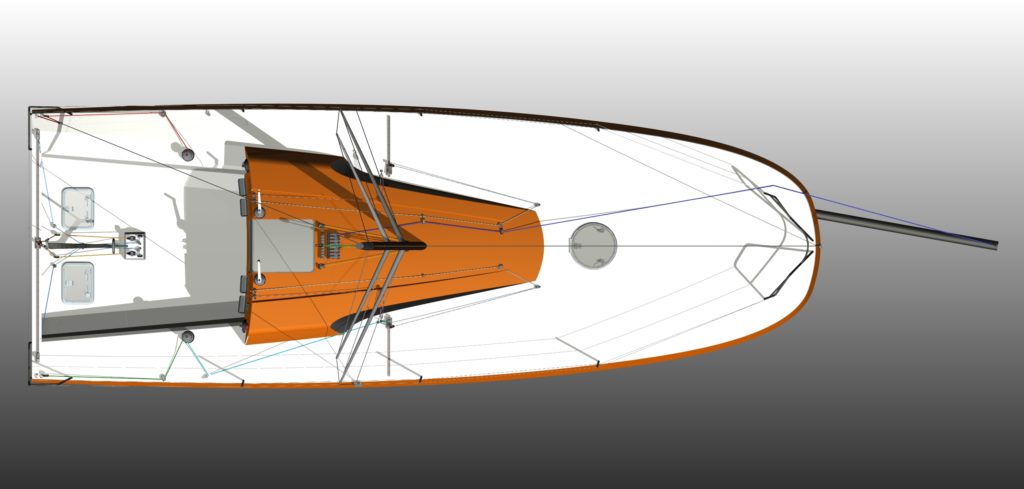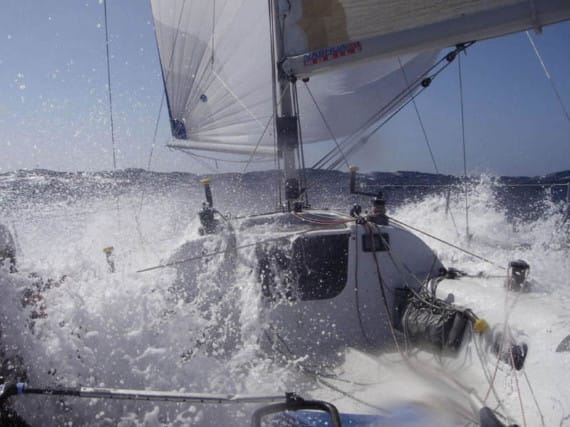The Ultimate Boat Company says it is racing ahead with its revolutionary sustainable material, Danu, as the recyclable composite material of choice for its mixed double-handed offshore keelboat.

UBC has developed its ‘Olympic 32’ sailing yacht for the inaugural double-handed offshore keelboat event which the company remains optimistic will feature in the Paris 2024 Olympic Games.
Danu uses the same infusion production method as glass and carbon fibre but is stronger and lighter than glass fibre and less brittle than carbon fibre, says UBC (https://www.ultimate-boats.com/professional).
It’s comprised of a combination of styrene-free resin and sustainable fibres. UBC started the development of Danu when the lack of an ‘end of life’ solution for yachts and powerboats became a growing concern, as reported by Marine Industry News. In response, the Danu composite material has been developed to be sustainable and circular, as well as being stronger and lighter than conventional glass fibre.
UBC has dedicated considerable effort to ensuring that the production method closely resembles conventional vacuum infusion yacht building. This has the added advantage of reducing production waste and requires less raw material. Plus, switching production to Danu incurs minimal manufacturing process changes and zero incremental labour costs – making it an immediate and affordable alternative.
The core material used in Danu is natural. At end of life, the constituent components can be reversed to their virgin state without losing any technical properties. Most crucially though, the material maintains its technical properties and strength after each recycle.
“Offshore racing is my life, but the ecology of the sea and marine environment is my passion,” says Jeroen Wats, UBC’s technical and innovation director. “This project was born out of a desire to make a difference to a growing environmental issue but also to demonstrate that in addition to its sustainability, Danu delivers numerous advantages in performance. Danu is lighter and has much less flexibility that GRP. This translates to less energy lost and higher performance, which remains our ultimate objective on this project.”
The International Olympic Committee (IOC) wants sustainability to be a critical aspect of the Olympics and is aiming for Paris to be the first ever carbon neutral games. World Sailing, the governing body of sailing sport worldwide, has led the way with its own sustainability agenda which requires 90% of the weight of an Olympic boat to be recyclable by 2028. If selected, UBC’s ‘Olympic 32’ sailing yacht will be the first composite racing yacht to achieve this stipulation.
UBC has partnered with French design house, Finot-Conq Architectes, and with Mike Golding OBE on this exciting project.
The keelboat will feature a scow bow.
“This racing yacht has been specifically designed for the inaugural mixed double-handed offshore keelboat event at the Olympics,” says David de Prémorel from Finot-Conq. “It has been developed to be super-fast upwind and downwind. Which will make this event as engaging and exciting for spectators to watch as it will be for the competitors to sail.”
“Danu will revolutionise yacht building and indeed all industries that employ composite,” says Golding. “Our world urgently needs to find more sustainable and circular solutions, and Danu represents a major step forward.”

